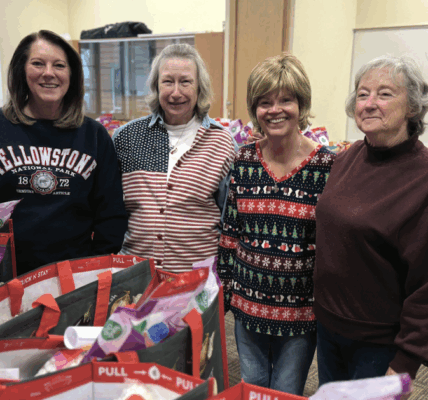By Kate Ready
Jackson Hole Daily
Via- Wyoming News Exchange
JACKSON — The Jackson Police Department is cautioning members of the community to watch their drinks.
Police officers have responded to several incidents in the last week that appear to involve drinks being “spiked” at local establishments, the Town of Jackson said Friday in a news release.
Police Chief Michelle Weber said it’s unknown whether it’s one perpetrator or multiple. There has been more than one report but officials declined to provide an exact number.
Jackson police detectives are investigating the incidents, which occurred last week. Weber wouldn’t comment Friday on whether people reported being assaulted or harmed as a result of their drinks being spiked.
The three most common drugs used to spike drinks are Rohypnol, GHB and ketamine. Prescription drugs such as sleep aids, anxiety medication and muscle relaxers also have been used.
One sign that you may have been drugged is feeling extremely drunk in a short period of time, especially if you haven’t had much to drink yet. Other symptoms include dizziness, trouble speaking, a very slow or very fast heartbeat and loss of motor function.
Often the drugs have no color, no smell, and no taste when added to a drink or food. They’re also hard to detect because residues of the drugs leave the body quickly and are often gone before a potential victim gets tested.
From January to March 2015, the Washington Post and the Kaiser Family Foundation conducted a survey of 1,053 current and recent college students. The students were asked about their experiences with sexual assault. Fourteen percent of women and 4% of men reported that they had been sexually assaulted while incapacitated by drugs or alcohol, or while asleep. This was the most common kind of assault experienced by both sexes.
The Community Safety Network, a local nonprofit that serves people affected by domestic violence, sexual assault and stalking, applauded police officers for their quick action and said that many bars have coasters that will test your drink for you.
“If there are bars that don’t have the coasters that want them, they can contact Victim Services,” said Shannon Brooks Hamby, CSN’s executive director.
Teton County Victim Services Coordinator Tracey Trefren said her organization had distributed more coasters to bars in town limits this week. While the coasters aren’t foolproof — they test for only two substances, GHB and ketamine — Trefren said folks can easily test a sample of their drink. If it turns blue, don’t drink it.
Trefren said the coasters also are available in a basket in Town Hall and are free to anyone.
The Rape, Abuse and Incest National Network, or RAINN, is the nation’s largest anti-sexual violence organization.
The organization said drug-assisted sexual assault also can take other forms such as coercing or pressuring someone beyond their comfort zone to ingest more drugs or alcohol or different substances than they are comfortable with; ignoring or refusing to help someone who says he or she has had too much to drink or is having a negative drug experience and needs help; and initiating sexual contact with someone because he or she is intoxicated and less likely to resist.
To help everyone stay safe, Jackson police issued three reminders:
- Do not drink from cans or bottles you do not open yourself or see a bartender open.
- If someone offers you a drink they got, do not take it.
- Do not leave your drink unattended.
Brooks Hamby applauded the tips and added one of her own.
“At CSN, we’d add keep an eye on the people you’re with and their behavior,” Brooks Hamby said.
Adrian Croke, education and outreach director for CSN, said that “unengaged eyes” can be a telltale sign that someone needs help. Other warning signs can include if someone is slouching or unable to stand without help.
Even bystanders can have a tremendous impact, according to CSN.
“It’s about being a culture and a community of care,” Croke said. “One where we support each other and are willing to be a little bit uncomfortable in the moment of stepping into something that seems questionable. Violence thrives in silence.”





